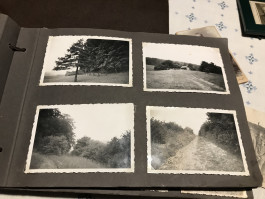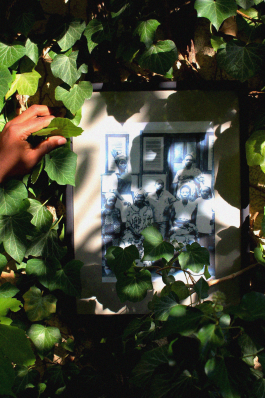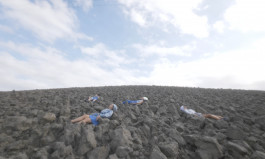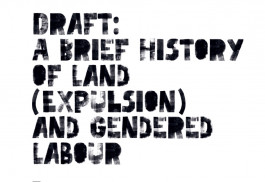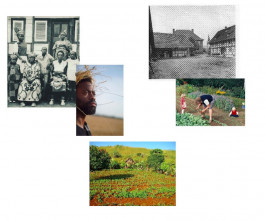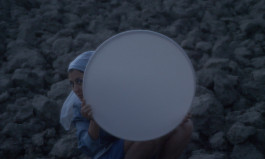
Field Narratives as an evolving project entails five thematic clusters, which we call “chapters”
I. The Farm after the Feminist Ecological Revolution
What do life and death look like on farms after the Christian patriarchal era? The bodily work of women outside in the fields for centuries has been described in a language that called the earth fertile or barren and referred to seeds (in Danish/German: semen). Women carried the nascent life, gave birth and cared for younger and older generations in a system called family. Through marriage, women received a name that was not their own and had to leave their home land, because not they but their brother would inherit the paternal farm. What languages need to be designed today to rethink the field, ecology, and care work outside of the binary, heterosexual totality? What utopias, metaphors and proposed solutions are there for agricultural life after the ecological catastrophe and after the oppression of women has been overcome?

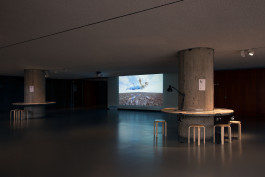
Haus der Kulturen der Welt, Berlin, installation view, 2022.
Photography: Jens Franke
II. Land as Totality
In Cameroonian cultures, the concept of land is all-encompassing. Land is a totality, a larger body to which – in the grand scheme of things – we all belong. It is owned, but it also possesses. The body, as form and as unity, has a very peculiar place and function for the land. WHERE DOES LAND END? Death, transformation, and transition play a role in the affective definition of place. We aim to rethink the liminality of the field. Through gatherings at Frieda Süd / Bauhütte Berlin we combine collective cultivating of two raised beds with conversations on questions of belonging and where land begins and ends. How can we deepen feelings and practices of belonging as visitors or arrivals in spaces that are not patrimonial/ancestral to us? Can an understanding of not-belonging due to a history of inherited violence, dispossession or displacement be healed by working with soil?
ongoing, Berlin
workshop
June 2020,
at HKW Berlin
III. Conditions of memory
We work process-based and will share content of this chapter at a later stage

IV. Monocultures and Muteness
We work process-based and will share content of this chapter at a later stage
V. Radical Rural Relations
We work process-based and will share content of this chapter at a later stage

Field Narratives as an evolving project entails five thematic clusters, “chapters”
I.
The Farm after the Feminist Ecological Revolution
What do life and death look like on farms after the Christian patriarchal era? The bodily work of women outside in the fields for centuries has been described in a language that called the earth fertile or barren and referred to seeds (in Danish/German: semen). Women carried the nascent life, gave birth and cared for younger and older generations in a system called family. Through marriage, women received a name that was not their own and had to leave their home land, because not they but their brother would inherit the paternal farm. What languages need to be designed today to rethink the field, ecology, and care work outside of the binary, heterosexual totality? What utopias, metaphors and proposed solutions are there for agricultural life after the ecological catastrophe and after the oppression of women has been overcome?


II. Land as Totality
In Cameroonian cultures, the concept of land is all-encompassing. Land is a totality, a larger body to which – in the grand scheme of things – we all belong. It is owned, but it also possesses. The body, as form and as unity, has a very peculiar place and function for the land. WHERE DOES LAND END? Death, transformation, and transition play a role in the affective definition of place. We aim to rethink the liminality of the field. Through gatherings at Frieda Süd / Bauhütte Berlin we combine collective cultivating of two raised beds with conversations on questions of belonging and where land begins and ends. How can we deepen feelings and practices of belonging as visitors or arrivals in spaces that are not patrimonial/ancestral to us? Can an understanding of not-belonging due to a history of inherited violence, dispossession or displacement be healed by working with soil?

III. Conditions of memory
We work process-based and will share content of this chapter at a later stage

V. Radical rural relations
We work process-based and will share content of this chapter at a later stage

IV. Monoculture and muteness
We work process-based and will share content of this chapter at a later stage

